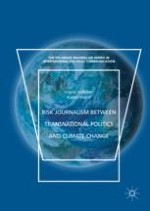2018 | Buch
Risk Journalism between Transnational Politics and Climate Change
verfasst von: Prof. Ingrid Volkmer, Dr. Kasim Sharif
Verlag: Springer International Publishing
Buchreihe : The Palgrave Macmillan Series in International Political Communication
